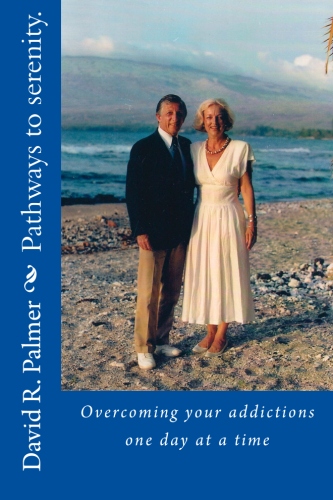The straight dope for parents
By Joseph A. Califano, Jr.
Fireside, a division of Simon & Schuster
Reviewed by David Palmer
Near the end of Joseph Califano’s book, “How to raise a Drug Free Kid,” the author quotes a father who wrote, “Like so many parents, we didn’t heed the warning signs. We found an empty beer bottle in the backyard, we smelled pot on his clothes, we found an unidentifiable pill in the laundry room; we chalked these things up to normal teen behavior, but we were wrong.
“One day, I found his backpack sitting on the bedroom floor, the contents spilling out. Inside was the tie we had given him for Christmas. Only it was cut in half, and he had been using it as a tourniquet. Also in his bag were several bags of heroin and some syringes.”
Tragically, Jim Bildner, the letter’s author, lost his son. He died of a heroin overdose.
So what is a parent to do? The first thing is to buy this book. Sixty years ago, baffled parents had Dr. Spock to rely on. Now they have Joseph Califano, at least when it comes to drug abuse.
Califano, a grandfather, is a lawyer and one-time Secretary of Health, Education and Welfare in the Carter cabinet who began campaigning against smoking 30 years ago. He is now the retired chairman of the National Center on Addiction and Substance Abuse at Columbia University (CASA) which he founded in 1992.
Five years ago Califano wrote the best seller, “High Society. How substance abuse ravages America and what to do about it,” focusing on the nation’s trillion-dollar annual bill for alcohol and illegal drug abuse. It, too, is a must read.
Shortly after that, he convened a CASA conference on “How to Stop Wasting the Best and the Brightest: Substance Abuse at America’s Colleges and Universities.” Among other things we learned that about one out of three students in the nation’s 4,000 colleges abuses alcohol, the most popular drug among teens.
We’ve heard it before, but it must be said again: parents have got to communicate with their children earlier and more often. It is the single most effective thing they can do, Califano says, and he has recommendations for getting it done. Family dinners may sound a little hokey and impractical to some, for example, but he recommends them highly.
Don’t panic, parents. Family dinners may be hard to pull off sometimes, but Califano offers tons of tips and reassures us that “parenting is an art not a science.”
Here’s a list of nine tips:
1. Be there: Get involved in your children’s lives and activities.
2. Open the lines of communication and keep them wide open.
3. Set a good example: Actions are more persuasive than words.
4. Set rules and expect your children to follow them.
5. Monitor your children’s whereabouts.
6. Maintain family rituals such as eating dinner together.
7. Incorporate religious and spiritual practices into family life.
8. Get dad engaged — and keep him engaged.
9. Engage the larger family of your children’s friends, teachers, classmates, neighbors and the community.
Califano also provides a glossary in the back of the book to help parents understand which drugs are which and how they work. Here’s a sample of how bad some of them are:
Marijuana: particularly damaging for the developing minds of adolescents. Marijuana can impair critical cognitive function related to attention, memory and learning.
Inhalants (popular with young teens and pre teens): Chronic use of inhalants can cause serious damage to the brain, heart, lungs, liver, and kidneys. In rare cases, abuse of inhalants can be fatal.
Ecstasy: Research has shown that ecstasy can cause long-term damage in the parts of the brain that are involved in mood, thinking, verbal memory and judgment.
Opioids: Taking a large dose of opioiods at one time can cause severe respiratory depression and death.
When parents begin communicating there is likely to be some push back regarding their qualifications for judging others and other diversions. If you’re stuck on any of the following queries, read the book.
• “You and dad drink wine/beer/a martini with dinner. Why can’t I?”
• “What’s the difference between you drinking beer and me smoking pot?”
• “So long as I don’t drink and drive, what’s wrong with having a few beers at a party. All the other kids do.”
• “Prescription drugs are safe. What’s so bad about using them at a party?”
• “How could marijuana be bad for you if it’s just a natural herb?”
• “Lots of kids on the football/basketball/soccer team/honor role drink and smoke pot, and they’re fine.”
• “Most kids who smoke cigarettes don’t smoke pot, and most kids who smoke pot don’t turn into drug addicts. I can handle it. Don’t be uptight.”



